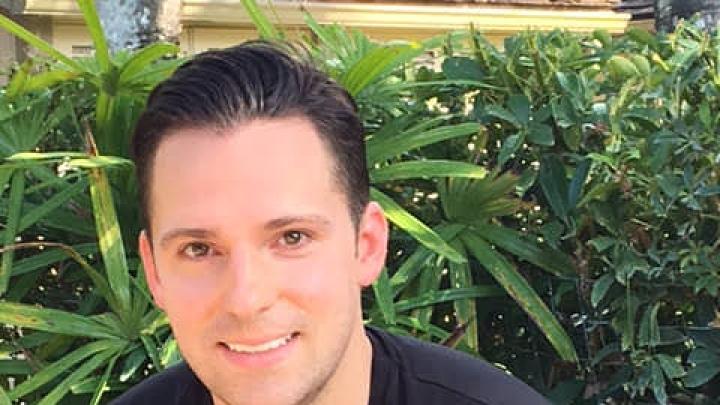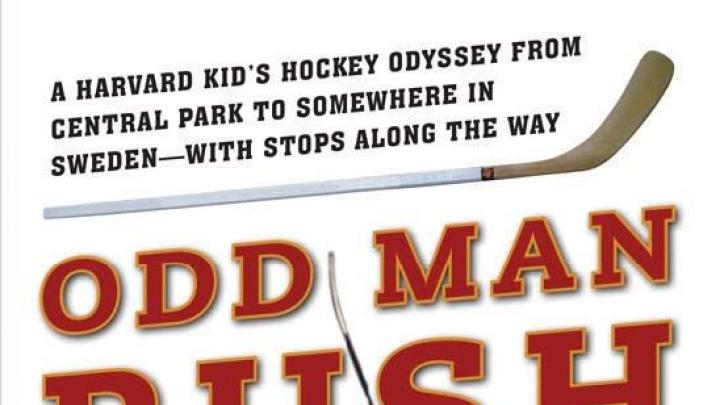In his recently published memoir, Odd Man Rush, Bill Keenan ’08 describes standing atop a table in a crowded room, garbed in a tutu and pink tights, and performing with aplomb (as a child he’d briefly studied ballet) steps from the opening act of Balanchine’s Nutcracker.
That incident occurred in Annenberg Hall during Keenan’s freshman year, in response to a dare from his coevals on the men’s hockey team, but it’s a sign of the sheer oddity of Keenan’s adventures that it would seem fitting at any point in the memoir. The book, from Skyhorse Publishing, bears on its cover the blocky and aggressively informative subtitle A Harvard Kid’s Hockey Odyssey from Central Park to Somewhere in Sweden—With Stops Along the Way. It briefly limns his days at Harvard, up to the moment he decided, at the end of senior year, to continue playing—in the European minor leagues. Then his three years of professional play—for the Turnhout White Caps of the Dutch Eredivisie, EHC Neuwied of the German Oberliga, and Kramfors-Alliansen of the Swedish Hockeyettan, among other teams—whir by in a stream of comical anecdotes and absurd personalities.
The memoir came about when he returned to the United States and discovered that he was unemployable. “There’s not really a market for someone three years out of school who doesn’t know accounting, who has no real job skills,” he says. “I really had no idea what I wanted to do.”
It was during this jobless interregnum that he began to write. While in Europe, he’d maintained two separate streams of e-mails, one to his parents (“To tell them, ‘I’m alive, don’t worry’”), the second to his friends. In those more candid communiqués, he recounted, among other things, the fact that his newest roommate began each day with a glass of vodka, and he drew primarily from the same source when he started his book. His aim, at least initially, was a form of closure. “There was a kind of therapeutic aspect to writing,” he explains. “When you do something for 20 years and stop cold turkey—well, it was almost a way to figure out, what was it about the experience that I loved?”
From the first, he knew he was writing within a very particular genre—that of the minor-league memoir. He cites as an inspiration the works of baseball player Dirk Hayhurst (author of, among other books, the not-quite-so-prolixly-titled The Bullpen Gospels: A Non-Prospect’s Pursuit of the Major Leagues and the Meaning of Life). “I think more people can relate to [those stories],” Keenan says. “Most of the people who play sports have an experience like I did, where you don’t make it to the top—you make it somewhere, at some point, and then you call it quits. It can happen when you’re 10 years old or 25, but you have to confront the fact that you’re not going to get to where you want to go.”
Keenan graduated from Columbia Business School in May and is now an associate in Deutsche Bank’s investment-banking division, though he’s fairly confident he won’t stop writing. He seems to have gotten the bug. Of his experience creating Odd Man Rush, he says, “I wanted to remember it all in a certain way. And that’s what writing it allowed me to do.”









